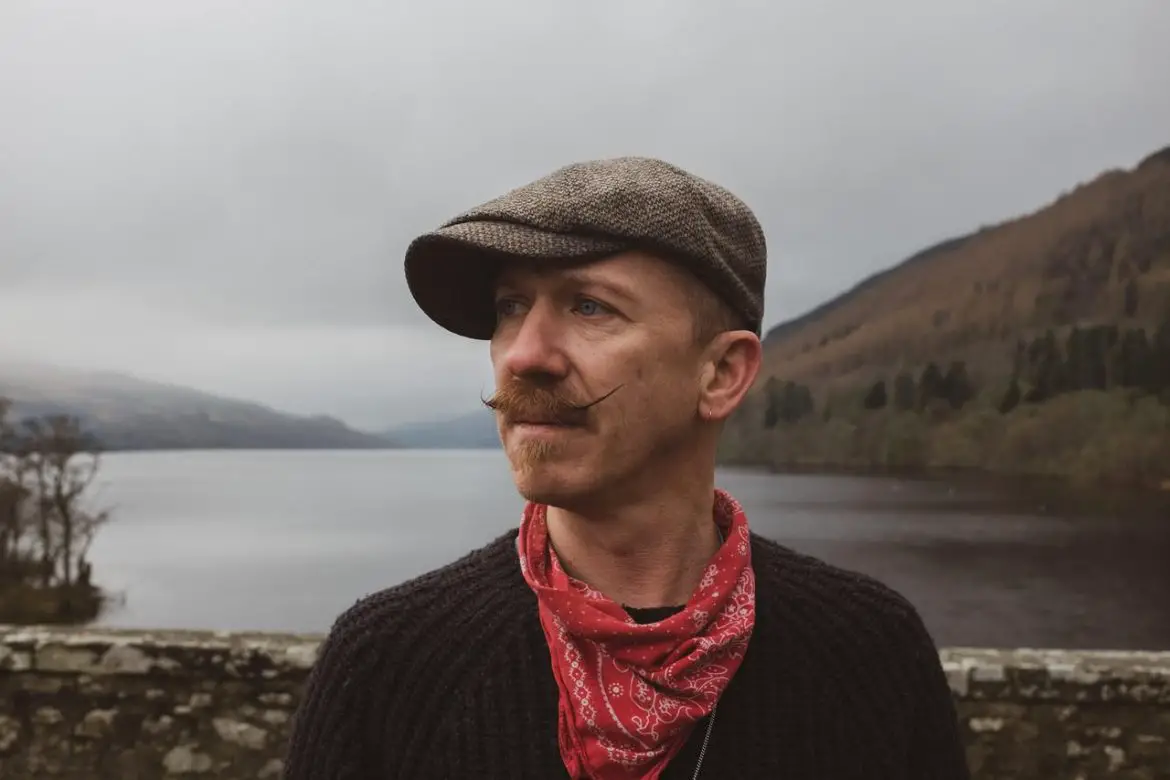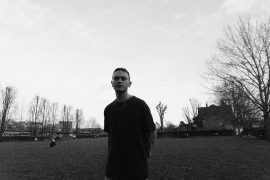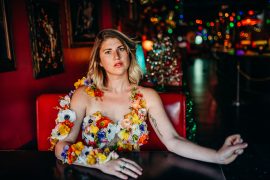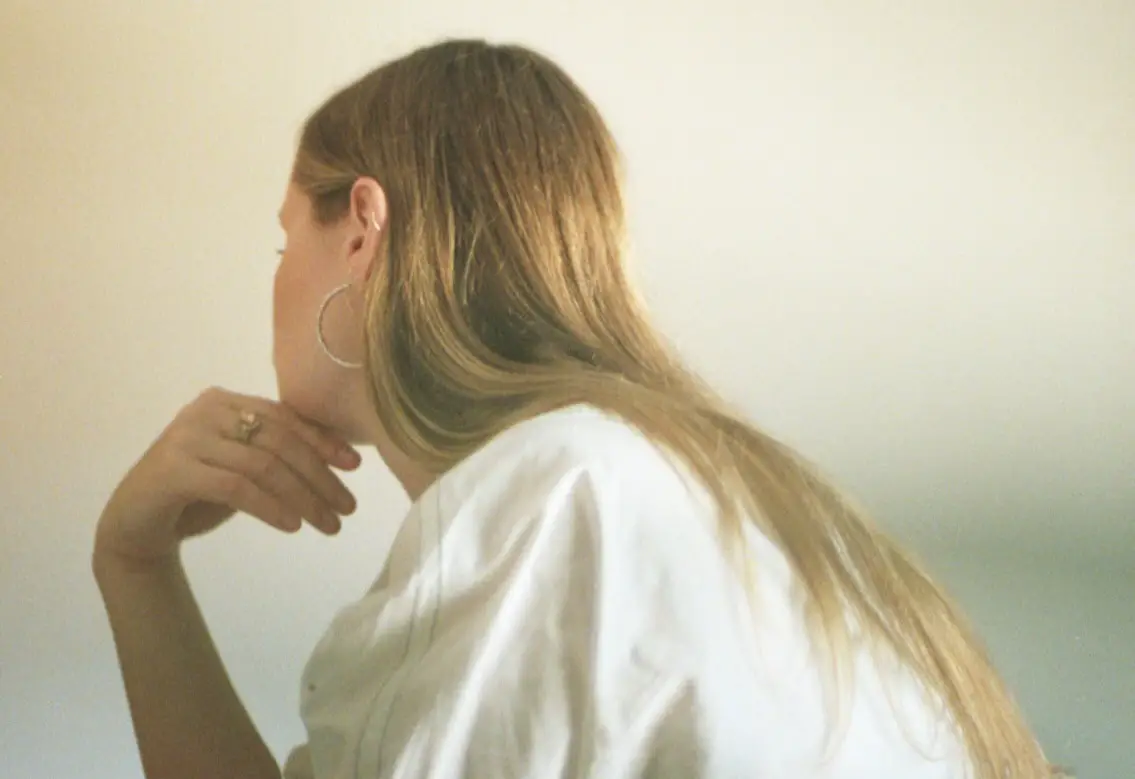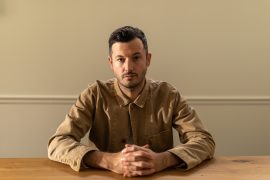Irish singer/songwriter Foy Vance spent the past few years laying low, taking a break from touring for the first time in 20 years. Born out of the quiet is his transformative new album, ‘Signs of Life.’
Listen: ‘Signs of Life’ – Foy Vance
While the entire world was undergoing a lockdown, Foy Vance was doing the same, but of his own accord.
Touring non-stop for twenty years straight is a feat that many artists might not commit to, but for Vance, the touring lifestyle was what he knew. Creating music that touched the soul and transcended the sounds of today, the Irish singer-songwriter found success when his second full-length album, Joy of Nothing, won the inaugural Northern Ireland Music Prize. Consequently, what followed were global tours supporting acts such as Ed Sheeran, Bonnie Raitt, Marcus Foster, Snow Patrol, and Sir Elton John, on top of his own headline tours. After two decades of playing shows across the world, Vance hit the breaks, prioritizing family, mindset, and stillness. Getting in touch again with the roots of his music, the Bangor native is now settled in the Scottish Highlands with his family, where he wrote and recorded much of his brand new album, Signs of Life, released today.

Being home took Vance a while to get used to. The quiet, the stillness, the normalcy, if you will. Vance played his last show in November of 2017 at Union Chapel in London, and it was just last Spring when he was able to finish unpacking the contents of his suitcase from that tour. “It took a while getting used to being home,” Vance explains in a statement from his adopted place in Highland Perthshire. “It took a while to get used to writing again, which is why I turned, practically, to old, unused songs and sorting through them, just so I was doing something.” With no tour on the books, Vance’s only plan was to write and record his next studio album but recycling old, unfinished songs left the artist feeling as though something was missing. “When I was writing it was just shit – I could come up with melodies, or cadence, or words, but none of it felt anchored to anything. It all just felt like a paper bag in a hurricane. Nothing was happening. Until ‘Sapling.’”
I went looking inside myself for a home
Found only a sapling in search of an oak
But it’s a start, my love
Oh, it’s a start, my love
Writing “Sapling” opened Vance’s eyes, the track showing him a way forward. Finding time to look internally into himself for the first time in a long time, “Sapling” brought the artist clarity, forging an open pathway for his next record. Released as one of the first singles off the album, “Sapling” is a slow yet stunning, almost cathartic track with a quiet piano and pulsing beat to guide its themes of birth, rebirth, and renewal along, but it’s Vance’s voice that provides the song its bloodline. The song’s lyrics, chords, and ideas came to Vance during a moment when he realized it was time to fight – and immediately end – all his addictions. Once he discovered it, Signs of Life was born.
Serving as an acronym for his second son’s name, Sol, Signs of Life isn’t just a continuation of the Foy Vance discography. It’s a death and rebirth. It’s the burning of ash and then planting a seed, and through the record’s transcendent sound and intimate lyrical perspective, Vance creates a new place of comfort, born out of quiet, not only for the realized feelings he found but also for his fans who are no strangers the magic of the artist’s writing.

Following the 2019 release of his dual albums To Memphis and From Muscle Shoals, his brand new record features songs like “Time Stand Still,” “If Christopher Calls,” “Roman Attack,” and “Hair of the Dog,” – all tracks that find a way to explore dawn after darkness, hope after despair, engagement after isolation, and uplift after lockdown. Written solely by Vance and produced by Gareth Dunlop, Signs of Life calls upon the shedding of our human weaknesses to find light.
Though Vance was working on the record before the lockdown restrictions that came with the pandemic, there’s no question now of the timeliness of his latest album. The way it touches upon finding healing after struggle remains an ironic blessing for listeners, but for Vance, it was just another way for him to document his art in the midst of revolting against his personal demons.
“Signs of Life is about re-emergence,” Vance explains about his new record. “Me in my own soft revolution, the world re-emerging in what we’re about to see as we hopefully go back to some semblance of normality. But just life in general – flowers growing through the cracks in Chernobyl. Life finds a way, doesn’t it?”
Foy Vance spoke with Atwood Magazine just ahead of the release of Signs of Life to talk more about death, rebirth, making art from a time of quiet, and exactly how soft revolutions – no matter who you or where you are – will always matter.
Watch: “Signs of Life” – Foy Vance
:: A CONVERSATION WITH FOY VANCE ::

Atwood Magazine: What has the past year been like for you, in relation to creating this album? Is this a project that has come out of you being at home for so long or is it something that you had been working on prior to a world with lockdowns?
Foy Vance: A bit of both, actually. I got off the road in November 2017. I played my last show. As of that night, I didn’t have any more tours in the diary, and that hadn’t happened for me in 20 years and the whole plan was to stop and make the next studio record. The working title at that time was “Republic of Eden,” and I had a lot of songs gathered and ready to go for it that aren’t on the record now, but it kind of coincided just prior to lockdown. I had a tour planned in the states with Anderson East, and I pulled the tour – and it’s the first and only tour I will ever pull in my life – but I pulled it because I knew I had to stop. The constant road. The constant focus of just going away. My daughter was just about to go through exams. My son was gonna turn three while we were on the road. My other son could have been born while I was on the road, and it just freaked me out. I thought I needed to put the brakes on and just be at home and write, and so I did that. Doing that really brought home what was going on with me.
Any time I was trying to go on the road, I was trying to mask something. I’m still a pretty addictive guy to lots of things – not as much as I used to be, thank God – but I guess in making the album and being at home and deciding not to go away, I was able to be in the studio, show up Monday to Friday just like anyone else in working life to get this record done. What transpired for me was the idea that you can’t write shit if you’re masking your emotions. You can’t write a thing. I had nothing to say. I was just trying to make some old songs make sense and none of it really made sense. The songs were good, the productions were okay, but it didn’t really have that feeling that it was real to me. I realized how much I was masking my emotions and I got clean for a while, and then I wrote a song called “Sapling” which was the wake up call for me.
Watch: “Sapling (Live From The Highlands)” – Foy Vance
A lot of the record revolves around the theme of death and rebirth. Would you say that 'Sapling' was the beginning of all that, and did those ideas of lightness in the midst of darkness or hope in the midst of despair become clear to you after you wrote that song?
Foy Vance: Yeah, absolutely. “Sapling” was the first song I wrote then that moved me. I knew it was touching my own bone. It was really affecting me, and to me, that’s the DNA of a song. It forced me to be honest, and that’s when the record changed from being “Republic of Eden” to “Signs of Life.” Those six or seven songs that I had set for the studio album just disappeared, and they were no longer relevant. There’s a lyric in “Sapling” – I’m quoting myself now – but there’s a lyric that says, “I went looking inside myself for a hope, if I had only a sapling instead of an oak, but it’s a start.” And that’s the truth of the matter. There was a time where I did feel like an oak, you know, before my first divorce. Before, when I felt certain and assured of what I was doing. I was assured. It didn’t matter whether people liked it or not. I felt really solid and I realized over years of touring and the distance between me and the actual epicenter of music, like the thing that got me involved in it, I just started to move away. After touring non-stop, I lost touch with music a little bit and with writing, and I lost touch with my own sense of willpower and strength. I gave into any and all addictions to get me through all that shit and when I realized that I shouldn’t anymore, I was so proud to even find a sapling. I said, “That’s okay. This is a good start at least.” And that’s what f***ing life is. It’s just death and rebirth and death and rebirth in a whole manner of forms.
I wanted to ask you about the two photos you put out for this record. One features you as a boxer, the other of you dressed as a woman. Do these two photos reflect that same birth and rebirth for you or is there a different meaning behind the duality in these photos?
Foy Vance: I think there are loads of different meanings behind what’s going on there. I think so much of good art comes from somewhere unconscious for me. I worked with James Miller the photographer who did the photographs for To Memphis and From Muscle Shoals, and I’m a huge photography fan. He shoots on glass and tin, and the whole theater of the day was what I did it for. We all got involved. His wife was there and she did all the make-up, but to be honest, we went in just to enjoy the process of the day. I guess in the back of my mind, I was aware of the duality of starting with a very masculine fighter and as it progresses, we did the one I call “Crysta,l” and the last shot we did was all the makeup still on and the wig off, but back to the fighter. I could sit here and post rationalize that but the truth of the matter is, I didn’t know what it meant until I did it. As soon as I saw the pictures I thought there’s the front and there’s the back and it made absolute sense and I didn’t have to think about why.
That’s really cool. Is that similar to how you approach songwriting?
Foy Vance: Absolutely.
Watch: “If Christopher Calls (Live From The Highlands)” – Foy Vance
I know you often collaborate with artists from writers in Nashville to Ed Sheeran, but this album you wrote and produced mostly on your own? Is that because it's more personal?
Foy Vance: Yeah, I never really write with anybody else for my own projects and that’s not a pride thing, it’s an interest thing because that’s the bit that I enjoy the most – the writing. The other stuff is really good work, and I really enjoy collaborating with others, but my own records are very very different.
When people listen to this album, is there anything you’re hoping they’ll take away from it?
Foy Vance: I hope they get something they need from it. I don’t think it’s about what you put in there, I think it’s about what people get out of it. There are certain songs that I get a lot from and I’m sure they’re not the same things that people listening will get from it. Let things mean what you want them to mean, if you enjoy it that way. I’m putting it out, and if it does something for anyone, then it’s worth having done it.
I know you're done with the 8-month long tour trips, but you are booked for a small tour to celebrate Signs of Life! Are you looking forward to touring this album on these short tour stops?
Foy Vance: I know that I’m really gonna enjoy being in a room with people and that unity that happens. I sing here all day every day. I get lost in that for sure and it’s great, but there’s just a different energy when you do the exact same thing you would do in private, but there are other people there watching. They have the ability to go with you, and when they do go with you that feeling by the end of the night when you’re all singing together, it’s just.. holy, isn’t it? It’s quite spiritual.
I’ve had the pleasure of being one of your shows and you walk off stage as everyone is singing to you and it is holy and spiritual in a way.
Foy Vance: Yeah, and I’m looking forward to that, but the god honest truth is that this is the first time in a long time where I’ve just been going like, “I really don’t want to leave home!”
I don't think any of us want to leave home any more so I totally understand!
Foy Vance: I know when I’m there, I’m going to be absolutely engaged with the tour, but right now, I’m just right here.
You’ve described Signs of Life and everything on it - the songs, the ideas, the themes, the stories - as 'You, in your soft revolution.' I know you’ve used this term before on your 2017 record, The Wild Swan. Can you explain what a soft revolution is and if its meaning has changed at all from when you wrote about it then to now?
Foy Vance: It’s meant the same thing since I first put it in a song 20 years ago. It’s that idea of these little revolutions that you can make in your life. You can just go, “You know what, I’m going to f***ing revolt against my addiction, against nicotine,” and that’s a tiny little change, but it has a huge impact. All those things, how you speak to someone in a shop, how you deal with people in the street… Little, soft revolutions. Just very small things that actually add up to make positivity.
— —
Celebrating the release of Signs of Life, Foy Vance is booked for select dates across the US and the UK on the An Evening With Foy Vance Tour 2021. Purchase tickets here.
— —
:: stream/purchase Signs of Life here ::
Stream: “Time Stand Still” – Foy Vance
— — — —

Connect to Foy Vance on
Facebook, Twitter, Instagram
Discover new music on Atwood Magazine
? © Babysweet
:: Stream Foy Vance ::

